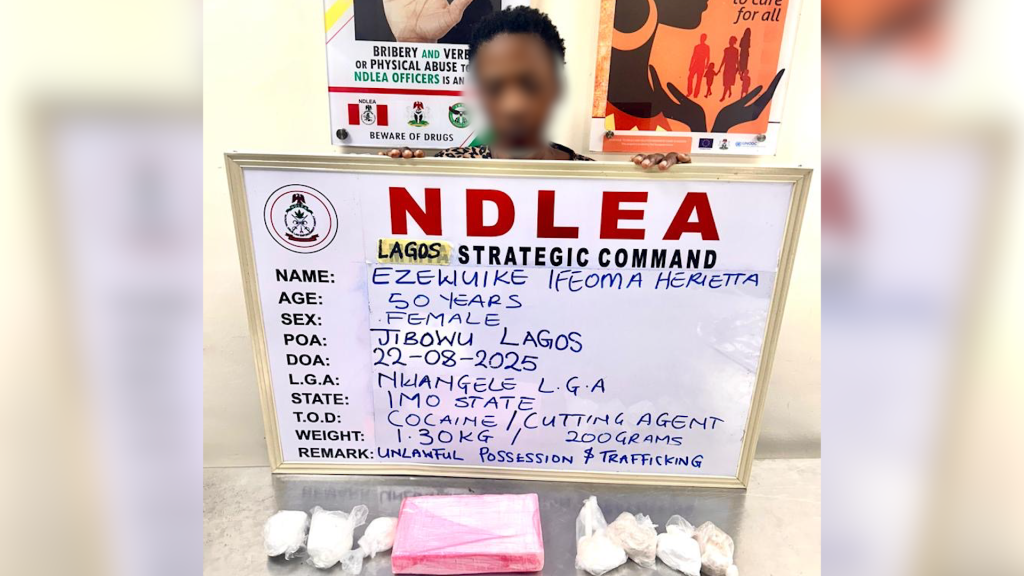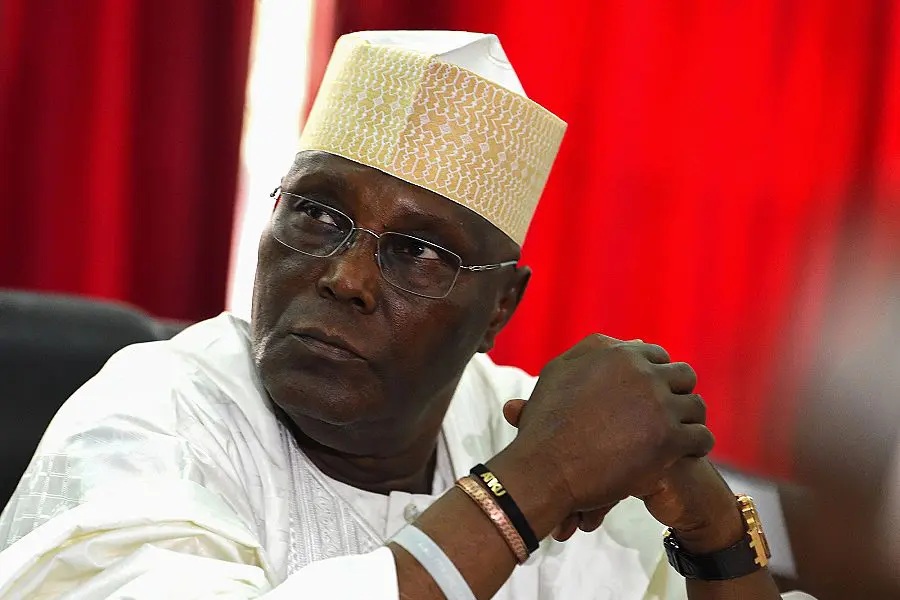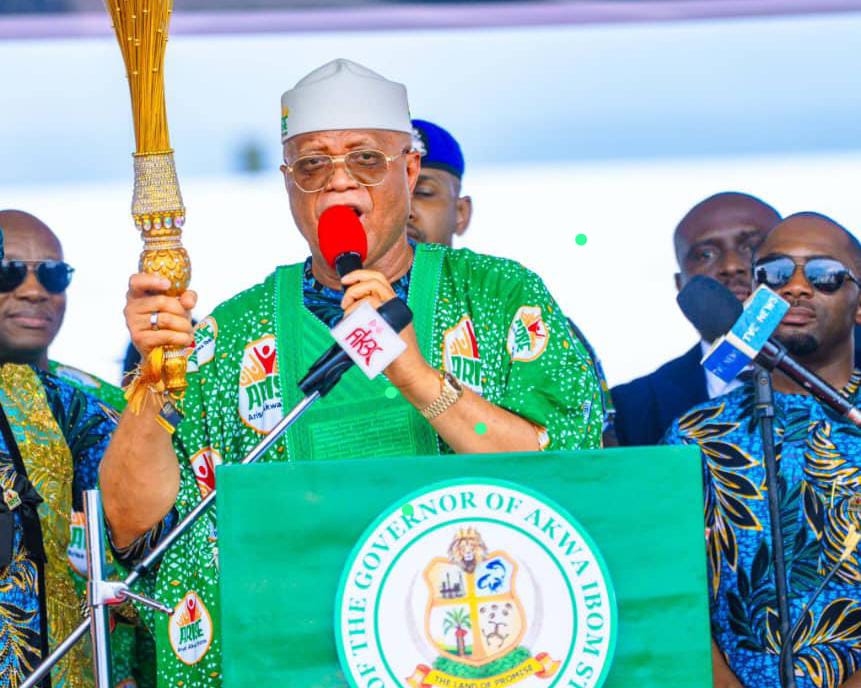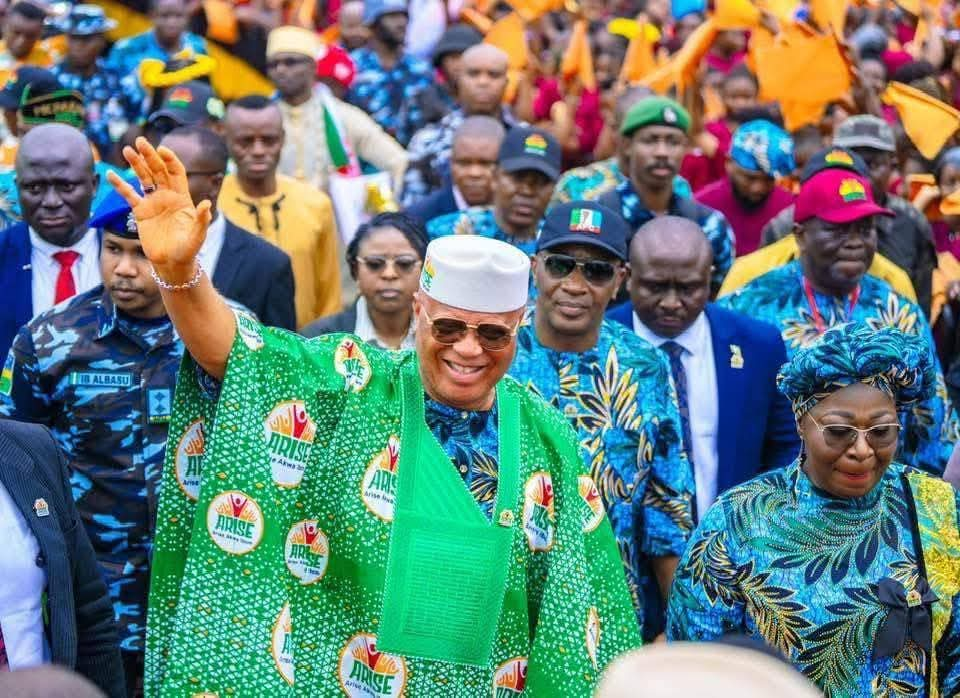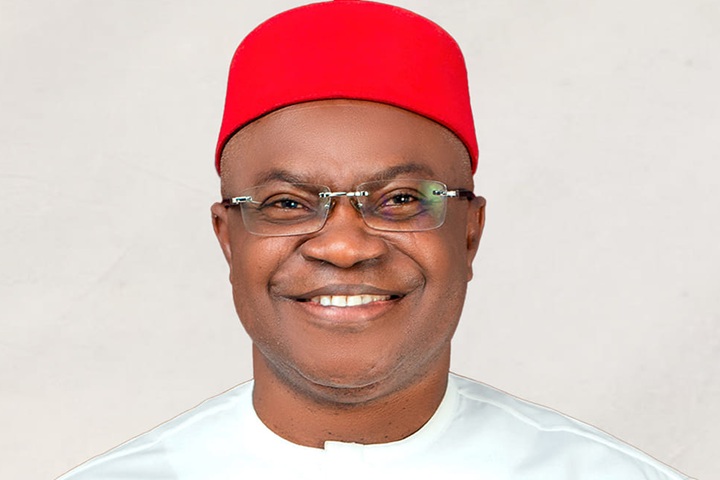Economy
LEAKED: Bill targeting startups reveals scheme of licenses, fees, fines, jail terms
For a while, there have been talks about revamping the outdated 2007 Act of Nigeria’s information and technology body, the National Information Technology Development Agency (NITDA).
The bill, which established NITDA as the agency to oversee Nigeria’s technological transformation, is quite outdated. This past decade, Nigeria has arguably become Africa’s most attractive destination for venture capital. It is also home to two unicorns (Flutterwave and Jumia) and billion-dollar fintech company Interswitch.
To keep up with the pace of innovation that has swept the country, NITDA tasked itself to review these laws and make them more beneficial for startups. Earlier this year, in March, the director-general, Kashifu Inuwa Abdullahi, proposed the realignment of the Act with “tenets and ideals of the fourth Industrial Revolution” and Nigeria’s Digital Economy Policy.
Yesterday, we might have caught a glimpse of what that amended bill looks like, and its details are rather concerning more so than friendly toward startups.
In summary, the bill states that NITDA wants tech companies operating in Nigeria to get a license, pay pre-tax profit levies and sanction whoever (person or company) operates contrary to the new Act’s provisions.
In 2019, the World Bank ranked Nigeria 131 out of 190 countries on its Doing Business Index, which measures the ease of doing business through a comparative assessment of regulatory environments.
Per the report, Nigeria was one of the top 10 countries with the most notable improvements during the review period of May 2018 to April 2019. Granted, the country made some improvements during this period, but since last year, any talk of progression from the country has been on paper. In reality, businesses, especially those focusing on technology, have faced harsh regulations and policies detrimental to their growth.
We witnessed how the operations of motorcycle-haling companies in Lagos were halted indefinitely in early 2020, forcing them to switch business models to survive. In March of this year, the country’s apex bank barred people from trading cryptocurrency through banks; crypto startups haven’t looked the same, despite using peer-to-peer methods. And more recently, the Twitter ban has affected small businesses in general, as well as how tech startups communicate with customers.
What’s in the bill?
Section 6 of the amended bill details the powers accrued to NITDA. Some of them include the power to fix licensing and authorization charges, collect fees and penalties and issue contravention notices and non-compliance with the Act.
The agency says it also reserves the right to “enter premises, inspect, seize, seal, detain and impose administrative sanctions on erring persons and companies who contravene any provision of the Act,” subject to a court order.
In Section 13, NITDA proposes establishing a fund (The National Information Technology Development Fund) to carry out the country’s digital economy objectives. How will this fund be financed? Grants-in-aid, fees, accrued money under administrative payments and levies charged from tech companies.
The bill declares that tech companies making an annual turnover of N100 million (~$200,000) will have to pay a levy of 1% of their profit before tax.
In Section 20 of the leaked bill, NITDA says it will issue licenses and authorizations for tech companies regardless of their size. The licenses are classified into three sections: product, service provider and platform provider. The bill provided no additional information about what these licenses entail and how startups qualify to get them.
However, the agency is more concerned about stating what will happen to individuals or companies that do not get these licenses or pay the 1% levy fee.
“Any person or body corporate who operates an information technology or digital economy service, product, or platform contrary to the provisions of this Act, commits an offense,” the agency said in the statement.
Individuals found guilty by the agency will be fined not less than N3 million (~$6,000) or placed into custody for a year or more. The bill states NITDA can also decide to charge such a person both the fine and imprisonment.
On the other hand, a fine of not less than N30 million (~$60,000) will be charged against corporate bodies. The “principal officers” of the companies may also serve a prison sentence for two years or more.
And individuals or corporates that deny personnel from the agency to carry out duties under the Act will be fined not less than N3 million (~$6,000) and N30 million (~$60,000), respectively. Prison terms range from a year to two in this section for individuals and members within a corporate body.
Further offenses and penalties are mentioned later in the bill. For instance, any company which falls into the category of paying levies and does not pay after two months will be liable to a fine of 0.5% of the total amount to be paid every day after the default.
TechCrunch reached out to the agency for comment regarding the validity of the leaked bill but did not receive any response as of press time.
Startup bill v. NITDA Act
NITDA’s leaked amended bill is coming when the Nigerian tech ecosystem has rallied around to engage policymakers in the country to enact a Startup Bill.
The Startup Bill is geared toward creating an enabling environment for tech startups through co-created regulations with the Nigerian government. This month, the first draft will be made public through a first reading in the country’s National Assembly in October.
Momentarily, uncertainty hovers around the stakeholders’ next steps following the content revealed in NITDA’s revised bill because the agency is supposed to play a major role in bringing the Startup Bill to fruition.
The leaked NITDA Amendment Bill also presents a whole new level of threat. It is head and shoulders above what tech companies might have faced in recent memory. If passed, it will alter how they operate and drastically affect the ease of doing business.
Many have called for startup leaders and tech companies to lobby the legislators behind passing bills to law. However, the general sentiment is that lobbying is a dead-end for now.
Sources say motorcycle-hailing companies tried to lobby with important stakeholders before the Lagos state government banned them from operating on its roads. However, it still ended in a ban.
Despite being one of the pioneers of the Startup Bill, Iyinoluwa Aboyeji, co-founder of Andela and Flutterwave, also thinks lobbying might make for a futile effort.
In a tweet, he says Nigerian legislators are not “lobbyable,” and startups should prepare for the worst while hoping for the best. He also offered advice to Nigerian startups to start building for a global audience and incorporate their companies outside the country if necessary. [TechCrunch]
Economy
Fidelity Bank Resumes International Transactions on Naira Debit Cards
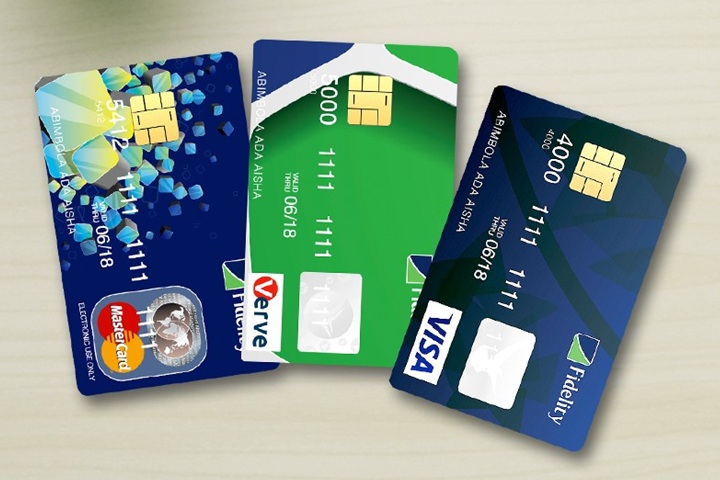
Tier-one Lender, Fidelity Bank Plc., has announced the resumption of international transactions on its Naira Debit Cards.
This recommencement gives customers the freedom to make seamless payments abroad, online, and at ATMs outside the country.
The Divisional Head of eBanking, Fidelity Bank, Ifeoma Onibuje, shed light on the development.
Onibuje said: “We are delighted to inform the public that Fidelity Naira Cards are now enabled for global use.
“This means that our travelling customers can now utilize their Naira Debit cards outside the country to shop, spend and withdraw internationally without hassles.”
“Consequently, our customers can now spend up to $1,000 quarterly for international POS and online transactions; and withdraw up to $500 quarterly on international ATMs.”
The announcement offers Fidelity Bank customers another way to complete international transactions, in addition to the Bank’s existing foreign currency debit and credit cards.
The bank stated that it further reinforces its commitment to delivering solutions that fit seamlessly into customers’ lifestyles.
With Fidelity Bank’s VISA and Mastercard Naira Debit Cards, Nigerians can now enjoy effortless global access.
Beyond payments, Fidelity VISA cardholders, one of the variants of the bank’s card offerings, also enjoy premium travel and lifestyle benefits.
The benefits range from airport lounge and spa access via the Visa Airport Companion App, to fast-track immigration lanes and 20% discounts on SIXT car rentals worldwide.
This move, the bank said, also reflects its commitment to provide secure, convenient, and reliable banking services that empower customers in Nigeria and beyond.
The bank noted that it has deliberately made the process of getting a Fidelity Naira card seamless.
It stressed that customers can easily apply for their Fidelity VISA or Mastercard Naira Debit card via the Fidelity Mobile App or simply visit the nearest Fidelity bank branch to request for one and they can start transacting globally with ease.
Ranked among the best banks in Nigeria, Fidelity Bank Plc is a full-fledged Commercial Deposit Money Bank serving over 9.1 million customers through digital banking channels, its 255 business offices in Nigeria and United Kingdom subsidiary, FidBank UK Limited.
The Bank is the recipient of multiple local and international Awards, including the 2024 Excellence in Digital Transformation & MSME Banking Award by BusinessDay Banks and Financial Institutions (BAFI) Awards; the 2024 Most Innovative Mobile Banking Application award for its Fidelity Mobile App by Global Business Outlook, and the 2024 Most Innovative Investment Banking Service Provider award by Global Brands Magazine.
Additionally, the Bank was recognized as the Best Bank for SMEs in Nigeria by the Euromoney Awards for Excellence and as the Export Financing Bank of the Year by the BusinessDay Banks and Financial Institutions (BAFI) Awards.
Celebrity/Entertainment
How Nigerian TikToker Geh Geh Made ₦45 Million in One Night

A Nigerian TikTok sensation known as “Geh Geh” has stunned the internet after pulling in over $30,000 from a single live session that attracted more than 177,000 viewers.
The young entertainer, who calls his platform the “University of Wisdom and Understanding,” has quickly built a cult following with his raw and unfiltered lectures about women, money, and survival in Nigeria.
During the live broadcast on Thursday, August 21, viewers showered him with virtual gifts that he later calculated to be worth over $30,000.
The milestone instantly pushed him into the spotlight as one of Nigeria’s fastest-rising online personalities.
Reacting in disbelief after the stream, Geh Geh said:
“More than 177,000 people watch my lectures today. Jesus! University of wisdom and understanding, the only university where once you graduate, woman go fear to ask you for money.”
Despite not having a formal education, Geh Geh proudly calls himself “the first illiterate to find a university in the history of Nigeria.” In a video after the viral live, he reminded fans of his humble background:
“I no be graduate too, but by the grace of God, I don find school. I be orphan, but now Nigerians don show me love.”
The TikTok star admitted he was overwhelmed by the generosity of his supporters.
“See gift I made over… more gift when they give me today is worth about $30,000. I no go take this love for granted, because I no really do anything for am.”
His rise has been hailed as proof of how social media is transforming lives in Nigeria. With no degree, no rich background, and no industry connection, Geh Geh has managed to build a fanbase that now calls themselves “students” of his unusual university.
Still, his controversial views on women and relationships continue to spark heated debates. While some dismiss his advice as reckless, others insist his boldness speaks directly to Nigeria’s frustrated youth.
Reflecting on his sudden fame, Geh Geh compared himself to great thinkers:
“If Nigeria be country wey value great people, by now them suppose dey compare people like me with Aristotle, Wole Soyinka, Einstein… but I thank God say people dey see my head and my own difference.”
From an orphan with no prospects to a viral star earning in dollars, Geh Geh’s story has become one of digital empowerment.
His journey shows how platforms like TikTok are creating new forms of fame, money, and influence for Nigerians especially those once written off by society.
Africa
UK Dominates Nigeria’s Q1 2025 Capital Inflows With N5.5tn — NBS

The United Kingdom has once again cemented its position as Nigeria’s leading source of foreign capital, accounting for more than N5.5 trillion in inflows during the first quarter of 2025, according to the latest data from the National Bureau of Statistics (NBS).
Figures from the Capital Importation Report show that capital from the UK rose to $3.68bn (N5.52tn) in Q1 2025, representing 65.26% of Nigeria’s total $5.64bn inflows for the quarter.
This marked a 29.2% rise from the $2.85bn recorded in Q4 2024 and more than double the $1.81bn inflows seen in Q1 2024.
This underscores Britain’s dominance in Nigeria’s external financing profile and highlights the strong bilateral financial ties between both nations.
Breakdown of Q1 2025 Capital Inflows by Country
United Kingdom: $3.68bn (65.26%)
South Africa: $501.29m (8.88%)
Mauritius: $394.51m (6.99%)
United States: $368.92m (6.54%)
United Arab Emirates: $301.72m (5.35%)
Together, these top five countries accounted for over 92% of Nigeria’s capital inflows, reflecting both the concentration of Nigeria’s foreign investments and the risks of over-dependence on limited markets.
Other contributors included:
Cayman Islands: $114.76m (up sharply from $0.64m in Q4 2024)
Belgium: $70.54m
France: $47.33m
Netherlands: $42.68m (down significantly from $425.61m in Q4 2024)
Singapore: $36.79m
Overall, capital importation into Nigeria stood at $5.64bn in Q1 2025, up 10.9% from Q4 2024’s $5.09bn, and a remarkable 67.1% higher than the $3.38bn recorded in Q1 2024.
The NBS noted:
“Capital Importation during the reference period originated largely from the United Kingdom with $3,681.96m, showing 65.26 per cent of the total capital imported.”
A separate survey by Strategy Management Partners (UK) reveals that British companies are increasingly targeting Africa as a strategic growth frontier.
50% of UK firms with annual turnover above £20m are already operational in Africa and planning expansions.
Another 28% of executives said they are interested but remain cautious about entry strategies.
Africa’s appeal lies in its resource wealth and demographic potential:
30% of the world’s mineral reserves
8% of natural gas reserves
12% of oil reserves
65% of the world’s arable land
Projected to host 25% of the global workforce by 2035
Seven key sectors remain magnets for foreign capital inflows into Nigeria and Africa at large:
1. Technology
2. Oil & Gas
3. Power and Renewable Energy
4. Agriculture
5. Manufacturing
6. Infrastructure
7. Strategic Minerals
Analysts warn that while Nigeria’s reliance on UK-driven inflows reflects strong global confidence, the concentration of sources exposes the economy to external shocks if investor sentiment shifts in these countries.
Diversification of investment partnerships particularly within Asi
a, the Americas, and intra-African trade will be crucial to ensuring long-term resilience in capital inflows.
Africa
U.S. Govt Reacts to Nigerian Minimum Wage

The United States government has said that Nigeria’s new N70,000 minimum wage has lost real value due to the sharp fall of the naira, leaving millions of workers trapped in poverty.
According to the 2024 Country Reports on Human Rights Practices, released by the U.S. Department of State’s Bureau of Democracy, Human Rights, and Labour, the wage translates to just $47.90 per month.
The report noted that currency devaluation and weak enforcement have undermined the wage increase.
The report also revealed that many states are yet to implement the new wage law. Several governors cited financial challenges as the main excuse.
Even where the law exists, compliance remains poor because of limited labor inspectors and weak oversight from authorities.
Wage Devaluation and Exclusion
The report highlighted that firms with fewer than 25 workers are excluded from the minimum wage law, leaving millions of employees without protection.
This also explained that about 70 to 80 percent of Nigeria’s workforce operates in the informal sector, where wage and labor rights are almost never enforced.
This means a majority of Nigerians continue to earn far below the national benchmark, despite the government’s approval of N70,000 as the new minimum wage.
The U.S. report stressed that the naira’s sharp decline, trading above N1,500 to the dollar, had worsened the wage erosion. This has left workers unable to afford basic needs, pushing many deeper into poverty.
Human Rights and Labor Challenges
The document pointed out that weak enforcement of labor laws contributes to worsening poverty levels in the country.
Workers in the informal sector, such as street vendors, artisans, and small traders, rarely benefit from labor protections.
The report also noted that Nigeria’s minimum wage is rarely sufficient to cover basic food, housing, and transport needs.
This has further exposed structural gaps in the government’s approach to economic reforms and poverty reduction.
Governors Push Investment Platform
Meanwhile, the Nigeria Governors’ Forum (NGF) has launched a new investment initiative called NGF Investopedia.
The platform seeks to attract capital flows into bankable projects across all 36 states, with the goal of tackling Nigeria’s annual $100 billion infrastructure financing deficit.
The launch event in Abuja gathered governors, international partners, and investors. The forum described the platform as a long-term strategy to unlock growth opportunities across states and strengthen Nigeria’s subnational economies.
NGF Chairman and Kwara State Governor, Abdulrahman AbdulRazaq, said Nigeria must urgently leverage its human and natural resources to address poverty and joblessness.
“Here is Africa’s largest economy, endowed with abundant human and natural resources,” he said, stressing that state governments must play a bigger role in attracting investments and supporting local industries.
A Widening Gap
The contrast between the U.S. report on wage decline and the governors’ push for investment highlights Nigeria’s economic paradox.
While authorities promote foreign capital inflow, millions of workers continue to survive on wages that have lost most of their value.
With inflation rising, food prices soaring, and the naira weakening, the gap between earnings and cost of living keeps widening.
Unless enforcement improves and the informal sector is integrated into wage protections, the N70,000 benchmark may remain symbolic rather than effective.
Economy
Global Card: Fidelity Bank Hits Milestone As Fidelity Naira Card Accepted Globally

Fidelity Bank may have hit another milestone the Fidelity Naira Card is now accepted globally.
This was disclosed in a message sent to Diaspora Digital Media (DDM) via email on Monday.
According to the statement entitled “Your Fidelity Naira Card Now Works Globally; Shop, Pay and Withdraw with Ease!“, customers can buy favourite global brands online using their Fidelity Naira Card.
The band also stated that they can equally pay at POS terminals abroad and make cash withdrawals at ATMs as they travel.
The message reads:
“We’re excited to let you know that your Fidelity Naira Card is now enabled for global use — so you can shop, spend and withdraw internationally with confidence.
“Here’s what you now enjoy every quarter:
|
Channel |
Transaction Limit |
| ATM Withdrawal abroad | $500 |
| Online/Web & POS Payments | $ 1,000 |
“What does this mean for you?
- Shop your favourite global brands online
- Pay at POS terminals abroad with ease
- Withdraw cash at ATMs when you travel.”
The statement, however, noted that the $1,000 quarterly limit applies to all international transactions combined, including ATM withdrawals, online purchases, and POS payments.
The bank urged customers who may need assistance with setting card limits or activating their cards for global use, to contact the bank’s customers care “Centre Trueserve”, which is available round the clock, whether in Nigeria, or outside the country.
“Your world, your card — spend smart, spend globally with Fidelity,” the message concludes.
-

 Celebrity/Entertainment2 days ago
Celebrity/Entertainment2 days agoHow Nigerian TikToker Geh Geh Made ₦45 Million in One Night
-
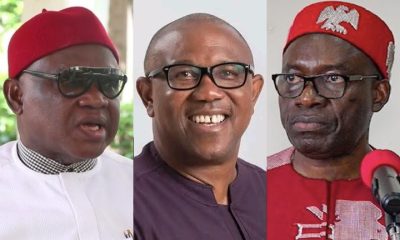
 Featured6 days ago
Featured6 days agoYour Attacks on Peter Obi Are Petty, Stop It! Chekwas Rebukes Soludo
-

 News5 days ago
News5 days agoTension in Anambra community as senior police officer shoots kinsman dead
Colleagues, others try cover-up; victim's family fights back
-

 News6 days ago
News6 days agoNigerian visa applicants must provide 5-yr social media history — US embassy
-

 News4 days ago
News4 days agoTerrorist Organisation: APC, PDP Members in US, UK, France Risk Deportation
-

 Celebrity/Entertainment6 days ago
Celebrity/Entertainment6 days agoWhy single mothers can’t raise boys into proper men — Jim Iyke
-

 News3 days ago
News3 days agoVandal electrocuted while vandalizing Aba power infrastructure
-

 News3 days ago
News3 days ago15% of Nigerian girls aged 15–19 are mothers or pregnant — FG
-

 News2 days ago
News2 days agoPeter Obi’s Son Breaks Silence Over His Viral Photos Nigerians Are Talking About
-

 News2 days ago
News2 days agoI’m not a gay — Obi’s son Oseloka speaks on viral picture



